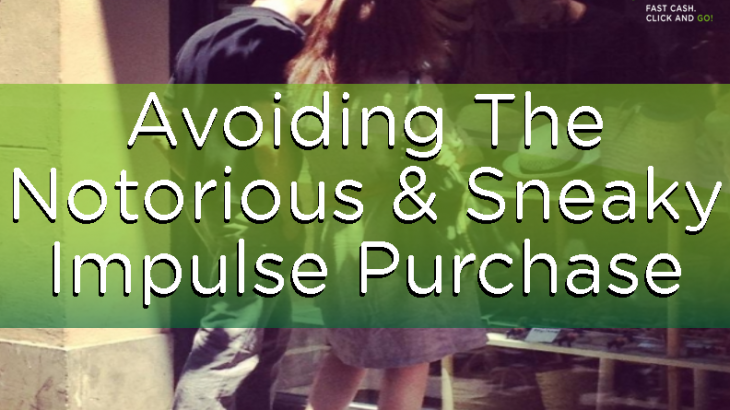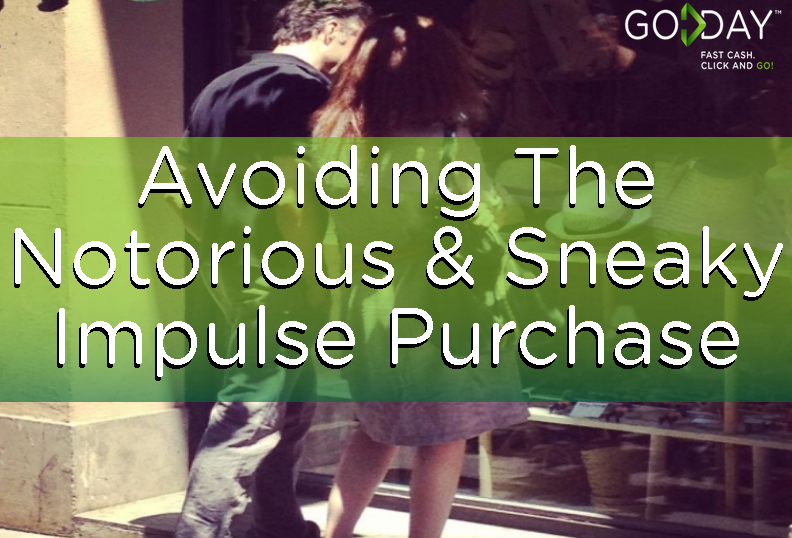” I went in for toilet paper and I came out with three bags of stuff “.
” I was just window shopping originally “.
” I have no idea what just happened “.
Any of these sound familiar? You’re not alone. Impulse buying is incredibly common, but why? Psychologists wager that impulse action, of any kind, is strongly related to anxiety or a desire to ” keep up with the Jones’ “. It’s no doubt that controlling it would not only be good for your wallet, but also for your mental happiness.
While the initial euphoric high of the impulse purchase might seem to be worth it, it’s not. You know this to be the case, due to the oh-so-notorious guilt that comes very quickly afterwards.
The good news, despite whatever the cause of your impulse buys may be, is that there are ways you can slowly build new habits to combat this old, pesky one. It’s important to understand where the desire to ” just have it ” comes from to best control it, thus we recommend this article from Psychology Today which discusses this behaviour in detail.
For now, we’ll outline some easy-to-implement control mechanisms to get that impulse in check.
Make a shopping list
Our brains work well with a direct goal in mind. Having a tangible, written list in front of you (or on your phone) gives you something to focus your mind on while you shop. Go into the store, buy what’s on your list and don’t browse. If something jogs your memory, ask yourself ” do I really need this or can it wait until I’ve planned for it? “.
If this is too difficult, limit your impulse reach to the shelf by one. That is, if you have an average of three to four reaches for something you don’t really need while grocery shopping for example, take it down to only two things. Slowly reduce how many things you buy on impulse each time you go out. Grocery shopping is really the best place to start this practice, as it’s something we all need to do often. It will help you build the habit for those bigger, more expensive purchases in the future.
Wait
This seems obvious and probably almost impossible, right? If you don’t have a list, and you’re “window shopping”, make a note of the things you wanted to buy on impulse on your phone. Take pictures, if you really want. And then walk away! Wait about a week and then review the items you documented. Chances are that time has given you a bit more of an objective perspective on your initial impulse. You might find that a week later you don’t want it at all.
Clean up your inventory
Do you have a junk drawer? A storage unit? A basement? Do these things have stuff in them? If so, it’s worth the time and effort to go through the things you already own before you go and buy something new. Finding something you forgot you had might temporarily trigger that euphoric action, too, since it’s once again “new-to-you”.
Bigger purchases? Don’t be foolish
Remember the Elvis Presley song? Fools rush into things, so don’t be one. Slow down. Think about your actions and most importantly the consequences. Sure, it might be fantastic to have the newest iPhone or newest car on the block, but guess what? In a few months, both of those things will be much, much cheaper. Not to mention you won’t be spending all day in a line up at the Apple Store. Bonus.
Keep the credit at home
This one is simple. If you find yourself impulse buying on things you don’t really need (the majority of spends really are in this context), then make it really easy on yourself and keep your credit cards at home. Go with cash. If your debit card and chequing account has a lot in it, withdraw what you need, stick to that list (see number 1) and even keep your debit card at home. It’s not worth the guilt and we both know the “oh I’ll just go and return it” speech you give yourself won’t come to fruition.
Shopping online? Be search specific
Who else hates the dreaded recommendation box? The more generalized your search terms are, the more variation it will yield and thus the more risk of you seeing (and buying) something you aren’t actually looking for. Example? Instead of looking for “kitchen appliances”, search for “toaster oven”.
—
Remember, just because something looks great, smells nice, would taste good doesn’t mean you need to have it. It’s just there. If you’ve been living fine without it up until now, chances are you can continue to do so.
Happy smart shopping!




